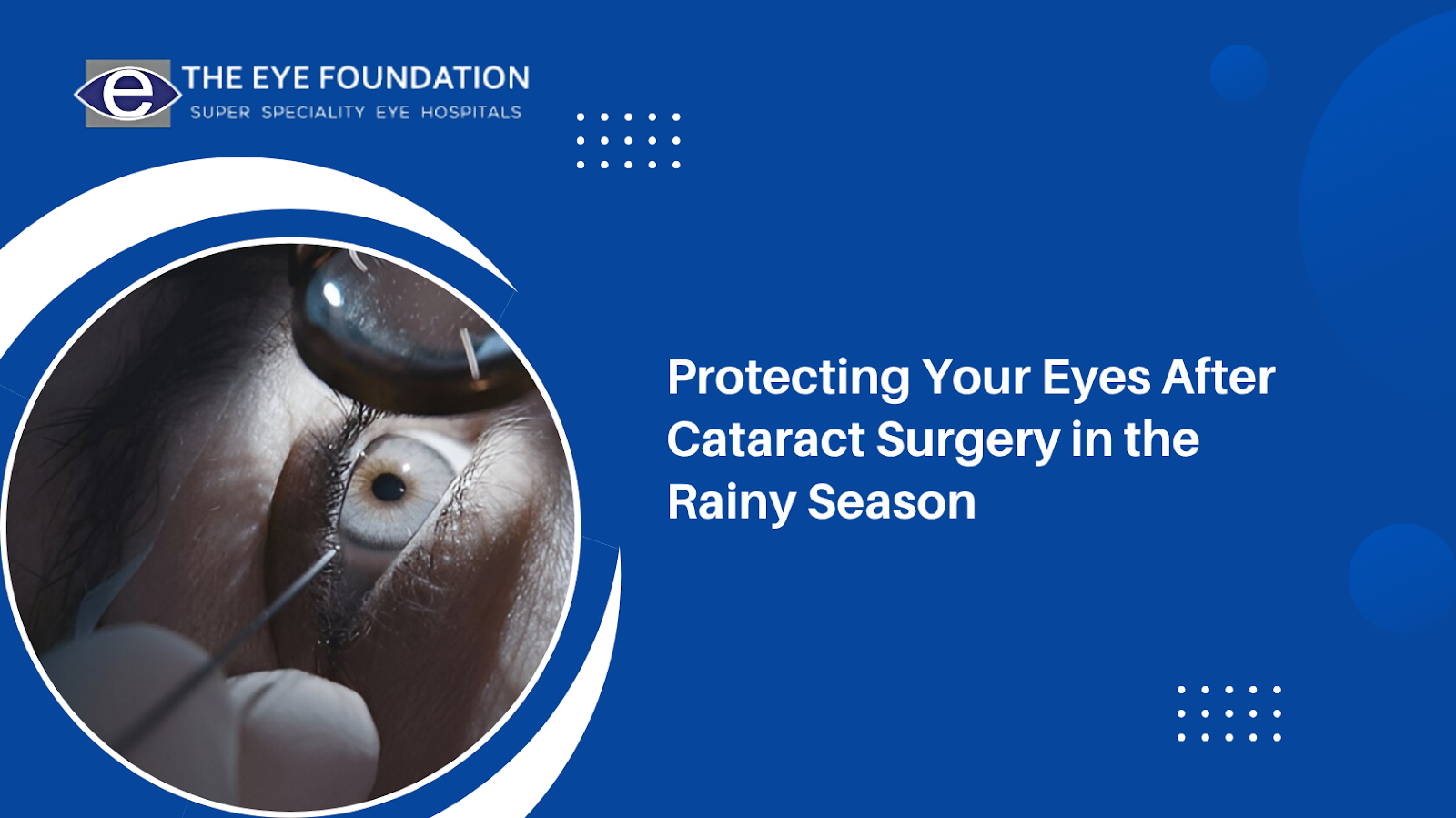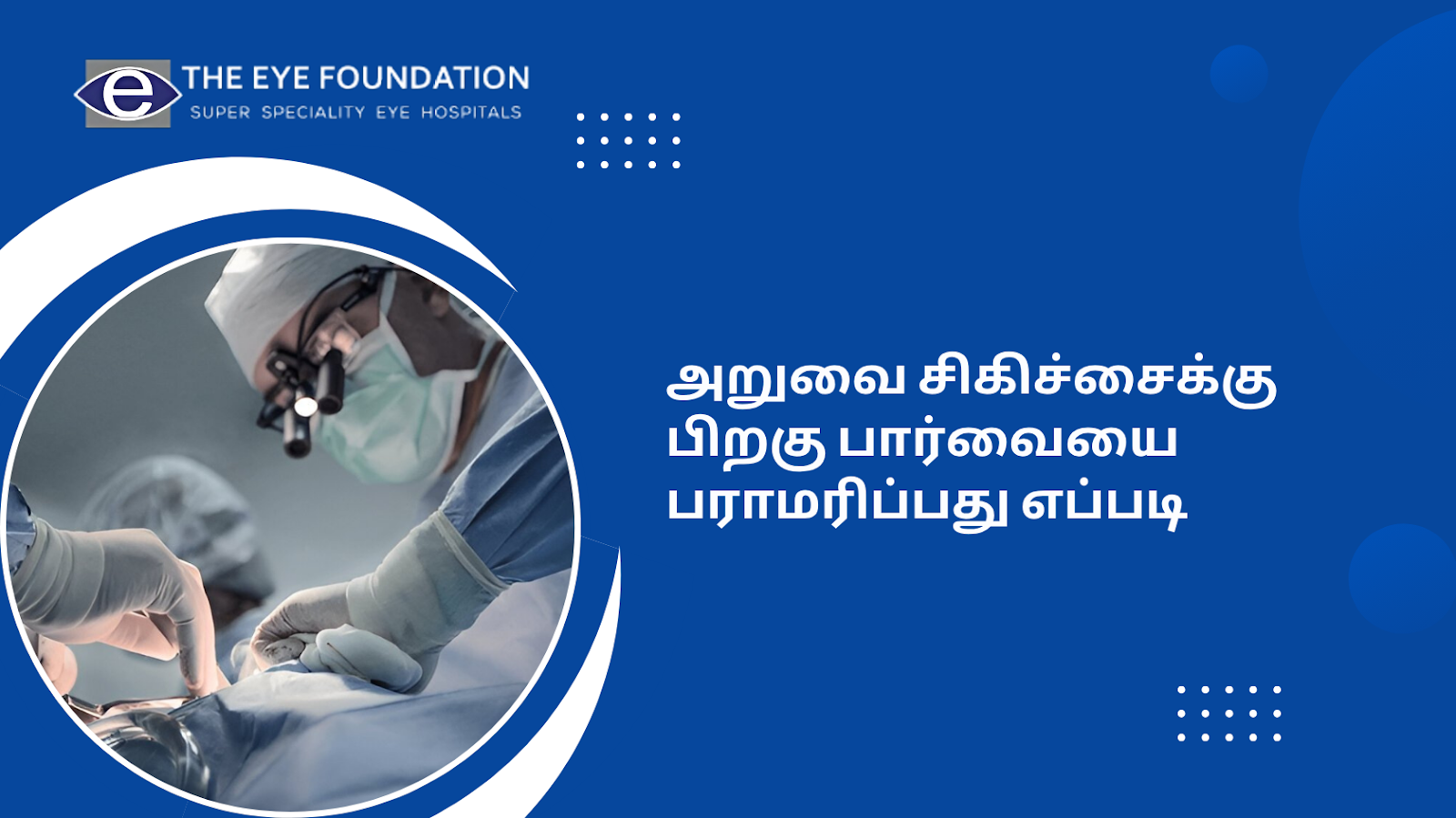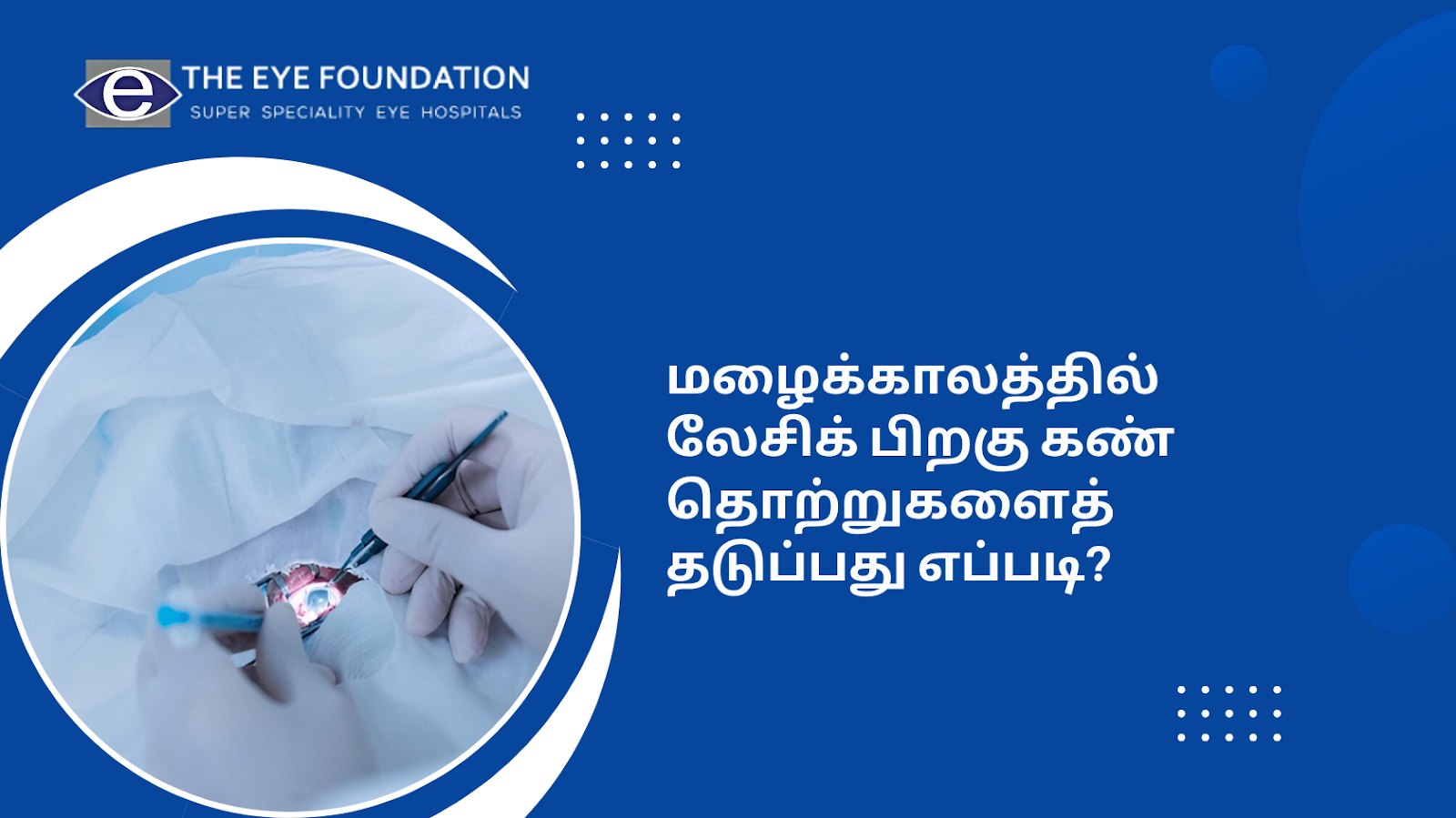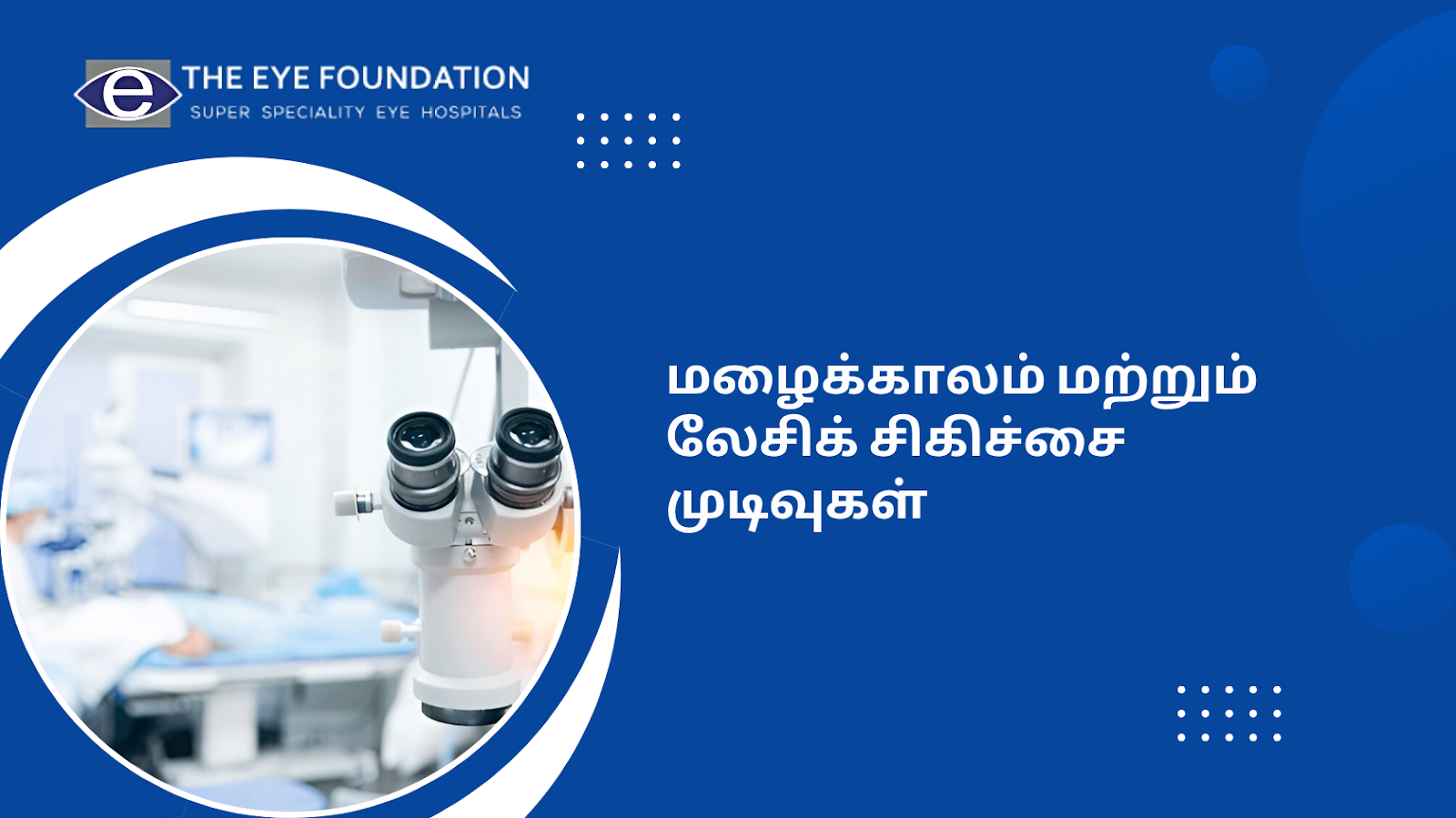While the monsoon season can provide relief from the summer heat, if you have recently undergone cataract surgery, you will need to be much more careful during this time. Proper post-cataract surgery care during the rainy season will benefit your healing and your eyes considering the environmental components related to rain, humidity, dust, pathogens and splash-water. Here is a detailed guide on how to best care for your eyes after cataract surgery during the monsoon season.
1. Recognizing The Healing Journey
The eye is beginning to heal from both the incision and the placement of the intra-ocular lens. According to resources, many patients begin to see progress regarding their vision improvement between 1 to 3 days. However, full recovery may take several weeks. Your doctor will provide eye drops (antibiotic + anti-inflammatory) and instruction regarding what to take care of your eyes with. It is crucial to follow the regimen as prescribed in order to recover smoothly.
Now, consider what that would be like in the rainy season: increased moisture in the air and potential rain-splash, puddles, more humid conditions and wind stirring things into the air or onto your eye! Caring for your eyes during the healing journey during the rainy season requires additional caution!
2. Because of the Monsoon, Additional Care is Needed
- Risk of contact with water & splash: Rain, wet hair-washing, showering, mop-cleaning indoors, all intensify the risk of water, soap, shampoo or dirt into the eye and this is one of the main considerations/concerns post the cataract surgery and water contact should be minimized.
- Humidity & risk of infection: A moist environment can lead to microorganisms. An incision on the eye is still fresh and at risk for infection and we should consider this an additional step in care.
- Wind, Dust & debris: The rain and storms also stir up wind and particles into the air.Your eye is still sensitive while it heals You are at risk of irritation or infection from debris or dirt getting in your eye.
Less sunlight, but more indoor exposure is important. Bright sunlight may not be present, but reflective light, indoor light, and being splashed by a puddle means you will still need to protect your eye from foreign matters.
Mobility & chores during monsoon The things people usually do more during the monsoon are house cleaning, mopping floors, getting wet, opening windows, and walking in the rain puddles. This involves some bending, lifting, or just moving your body when these tasks often involve more activity than usual. Just take your time.
3. Special Considerations for Care Post-Operatively in the Monsoon
Here are some guidelines for care after cataract surgery that are specific to the monsoon period.
a) Protection from water and humidity
Mostly what we are going to talk about is keeping the rain off of your eye. If you are going to go out in the rain, make sure to wear wrap-around sunglasses, protective eyewear, or a wide-brimmed hat, or take an umbrella to keep from getting splashed.
When showering or washing your hair, lean away from the flow of water and close your eyes, avoiding water shooting directly onto your face. Many guides stated that you should keep water flow out of your eye for at least the first week.
Stay away from swimming pools, lakes, or standing water (puddles) for at least a couple of weeks. These are contaminated.
When indoors if it is windy, rain, or muddy/splashy, keep the windows closed so you do not get a spray from the wind or dirt from outside. Use the AC or fans instead of opening the window.
b) Minimize irritants (dust, wind, and little things you may not see)
Wear sunglasses to block any wind-blown dirt, raindrops, or soil. Protective eyewear may help.
- Avoid areas that are dusty or humid.Work sites, open drains, muddy tracks, etc., could be a source of infection or an irritant to the eye.
- Avoid the urge to rub or press your eye, even if it is itchy from exposure to rain or dust. Rubbing could possibly continue to do damage to the incision you have just had made and delay recovery.
- You should avoid eye make-up or creams over the next week in the area of surgery, especially with any hot or humid condition as infected skin is likely to occur.
- Avoid bending over or lifting anything heavy for at least a week or two.
- Mason rain may encourage people to bend over to lift umbrellas, puddles, move house, clean or something similar to that and each of these increases intra-ocular pressure and delays or affects something to do with the healing process.
- Please beware of taking a walk outside if it is wet, and take care not to walk over slippery floors or puddles, or go past an opened uncovered drain. A slip or bump to the eye may cause damage.
- If you must go outside especially with rain please try to keep your head level and don’t splash water into your face and use your protective eye wear.
- You may also decrease sedentary-time on screens for a period of time to decrease stress on the eye for the time being. As previously mentioned with the weather and the light, the eye may simply be more sensitive to humid and overcast conditions especially to start with this week lighter screen tasks would indeed be the process.
- Your medication - hygiene and follow up.
- Please use your prescribed eyedrops as your surgeon has exactly specified. This attention to using your drops is probably the most important pillar of recovery and should not be misplaced.
Also, please wash your hands after touching anything around or in your eyes with attention- every day your hands may have been touched with rain or some sort of dampness.
1. Attend Follow-Up Appointments
Make sure you attend all follow-up appointments scheduled after surgery, regardless of whether you're dealing with weather. If it worsens at any time during monsoon, or if you're not sure if something is wrong with the eye, or you're concerned about an infection (redness, pain, discharge, etc.), please notify your ophthalmologist. Remember that rain can impact access to care and cause delays to be seen if you wait for longer than necessary.
2. Sleep with Eye Shield or Pad
If you're told to sleep with a protective eye shield or pad over your operated eye, especially if to prevent accidental rubbing during sleep, make sure you keep it on (moist summer nights can increase eye rubbing, accidentally).
3.Special Notes for Chennai/Hosur Area
Since you are also in Hosur/Tamil Nadu and sometimes the rains can be heavy, reminds us to take extra caution when engaging in auto-rickshaw/bike rides in heavy rains. Not only can splashes potentially drip into your eye, but riding in heavy rain is usually not the safest either.
Indoor humidity may increase: If your mud room becomes humid it may not be a bad idea to use a dehumidifier, or provide ventilation to the room to decrease the humidity in the air where you would be sleeping or spending time (moisture in the air can increase allergens, or mould, to irritate your eye).
If you live near an area with construction or nearby open drains (this becomes severely problematic in heavy-rain seasons), do your best to avoid sitting in a vicinity near a window, or in an indoor area, that is prone to dust and insects made airborne.
On very rainy days, try your best to avoid stepping into puddles that can splash back at you or have insects underneath the water if it's outside (standing water outdoors can have insect activity).
If you are scheduled for eye appointments in your eye clinic (such appointments may be intermittently delayed due to the rain), you should be open with your eye care provider about any changes in your vision (especially if worse).
4. Red Flags and When to Seek Immediate Care
While we will hopefully guide you through the proper postoperative care through the cities Tamil Nadu monsoon, keep in mind that there are situations you must pay attention to no matter how or where you are. The following situation would require a call to your eye surgeon/ophthalmologist to investigate.
Sudden changes in vision either in blurry, good, or lost due to the amount of colour it has lost (for example) you must contact the eye surgeon's office immediately to determine if there is something wrong before time passes.
Eye pain (called "general pain", especially if it is not the normal, expected mild scratchy, dry feeling).
Pupils or the vision experience flashes of light or see many "new" spots in your vision that can't be explained (may require investigation for something).
Potential infection: Any of the above symptoms (redness or yellowish green discharge) associated with your eye.
5. Lifestyle & Diet Reminders for Recovery
It is important to stay hydrated. Even though moisture is commonly found in the outside world, your body etc. regardless needs sufficient hydration to help support the inner working of your body and eyes for maximal healing.
Eat a balanced diet with sufficient vitamins A, C, E, zinc and omega-3s in your diet (all are part of a healthy eye diet).
Allow your body the rest time it requires. Better quality rest can help your body heal, and unless you must over-exert yourself in wet, humid weather times, it would be a good reminder to slow down to help heal.
Manage your blood sugar (if diabetic) and overall systemic bodily health. Many kinds of infection come with rain, and having an overall common systemic illness can make your eye unable to heal as well as it could if you were healthy.
Before you engage in typical heavy cleaning chores or heavy outdoor clothes washing chores or similar activities, it may be wise to postpone /take a break from those until your eyes have taken time to adjust to vision change (after surgery time usually - 2-3 weeks for cataract surgery).
In summary, recovering from cataract or eye surgery in the monsoon can be more mindful about protecting the eye(s) from reacting with rain/dripping moisture/wind particles, or exacerbating whatever is in contact with water. However, with good care distance, good additional hygiene, protective wear, avoidance of any dirt or water contact, ongoing drops as directed, follow up appointments, you can support good overall healing time to protect your vision. The Eye Foundation appreciates the special thoughts and consideration for monsoon care after eye surgery.
We encourage you to book an appointment time with our specialist team if you've recently had cataract or planning cataract to have an environment most suited to your pre/post operative care and enjoy the very best consideration of eye surgery outcome.






